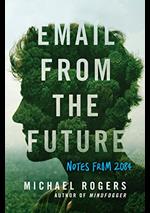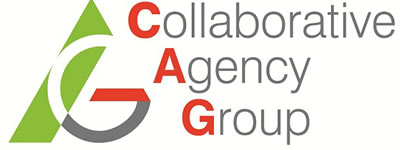
02 Jul Michael Rogers

Speaker: Michael Rogers
The Practical Futurist, Technology Pioneer and Journalist
Topics:
- What Comes After Covid?
- Management Meets The Future: The Innovation Challenge
- Artificial Intelligence Will Change…Everything!
- Your Business In 2030: A Customized Prediction
- The Healthcare Revolution
- The Virtualization Of America–And The World
- The Radical New World Of Education
Michael studied physics and creative writing at Stanford University with additional training in finance and management at the Stanford Business School Executive Program. He has worked as a keynote speaker with companies ranging from FedEx, Boeing and GE to Microsoft, Pfizer and American Express, as well as both NASA and the Department of Defense.
He addresses groups ranging from venture capitalists and corporate executives to educators, students and the general public and is also a regular guest on radio and television, including Good Morning America, the Today Show, PBS, CNN and the History Channel. A dynamic futurist speaker who delivers an entertaining and common-sense vision of change for business and individuals, Michael blends technology, economics, demographics, culture and human nature.
Michael began his career as a writer for Rolling Stone and went on to co-found Outside magazine. He then launched Newsweek’s technology column, winning numerous journalism awards, including a National Headliner Award for coverage of the Chernobyl meltdown.
For ten years he was vice president of The Washington Post Company’s new media division, guiding both the newspaper and its sister publication Newsweek into the new century, as well as serving as editor and general manager of Newsweek.com where he won the Distinguished Online Service award from the National Press Club for coverage of 9/11.
His work in interactive media ranges from early ground-breaking projects for LucasFilm and Apple to dozens of Internet ventures. He has received patents for multimedia storytelling techniques, and is listed in Who’s Who in Science and Engineering. He has been named to the Magazine Industry Digital Hall of Fame, and has also received the World Technology Network Award for Lifetime Achievement in Media and Journalism.
Rogers recently completed two years as futurist-in-residence for The New York Times and is a columnist for NBC.com. He is also a best-selling novelist whose fiction explores the human impact of technology. He lives in New York City where he works on book and television projects. His most recent book is Email from the Future: Notes from 2084, available in paperback, Kindle and audiobook.
What Comes After Covid?
The “virtualization” of our world has greatly accelerated. Work from home, telemedicine, virtual shopping, distance learning, socializing, exercise: this trend alone will impact every sector of the economy. But of course there is much more. Consumers will emerge with a new desire for security and control, yet lagging incomes will change what they can afford. The public will continue to seek authoritative information sources, with a new focus on wellness. Management will face questions about localization, automation, staffing and real estate. And this are just a start: the prognosis seems to change daily. What Comes After COVID? is a highly customized presentation. Michael will work with you and your team in advance to pull out the specific topics relevant to your sector. He offers either a virtual keynote with a Q&A, or else a full small-group interactive session.
Management Meets The Future: The Innovation Challenge
Never before has management’s life been so…interesting. Business, government and society are all creating a vast new digital infrastructure, from smart sensors and cognitive computing to wearable computers, extended social networks and virtual workplaces. That puts leaders in the midst of not just technical challenges but broader social quandaries such as the nature of privacy, white collar automation, reskilling workers, the rule of law in cyberspace–not to mention the strategic direction of the enterprise itself. How can successful managers discover and implement innovation while still meeting the daily challenges of business?
Artificial Intelligence Will Change…Everything!
Cognitive computing is the latest and most potent expression of artificial intelligence. Software and robots can now learn from experience and then reason and act upon information–often coming up with insights that humans might not reach. The astonishing abilities of ChatGPT are a good example. Because they are “cloud-based”, these powerful thinking tools will be accessible even to small organizations and individuals. The result will be new efficiencies and surprising new intelligent services that will change the very nature of work and challenge us to identify what skills are uniquely human.
Your Business In 2030: A Customized Prediction
For this popular speech, Michael—who is also a best-selling science fiction writer— does an interview to learn more about your business, practice or discipline. He then creates a realistic scenario of what your profession or business may be like in the late Twenties. He’ll identify potential new products, new customers and new challenges. He’s done it for lawyers, health care professionals, transportation companies, retailers, educators, financial services companies and more—even a luxury goods manufacturer!
The Healthcare Revolution
The future is bright for medicine: telemedicine, wellness monitors, personal genomics, electronic health records, and more. Plus: “big data” and smart computers will choose the best and most efficient treatment options based on actual outcomes. All this progress will come with caveats, of course: how do we keep the human element in healthcare? What are the privacy implications of personal genomic data? How do we fund the latest technologies while still making sure that basic healthcare is affordable? Michael has presented this topic to pharmaceutical companies, hospital networks, health insurers, medical educators and more.
The Virtualization Of America–And The World
Over the next decade, more and more of our work, what we care about and how we interact with others will involve the Internet, intelligent computers and the Internet of Things. If you think that’s already happened…just listen to what Michael predicts is next. Add to that the rise of a new generation of “digital natives” who are remarkably comfortable with virtual relationships. What will this mean for how our businesses and organizations must evolve in the years to come? How will products change to meet new needs and what will companies do to reach their customers?
The Radical New World Of Education
We’re all educators–either as professional teachers, or as managers, team leaders, mentors, or parents. In the future, we will be permanent students as well. The online world represents a powerful opportunity for education to reach a wider, more diverse audience. But it’s also a challenge to the future of both teachers and campuses.
And there’s a second issue: what do we teach? Now that young people live with one foot in the virtual world, how does that impact education and employment? What skills will our students initially bring (or not bring) to campus, and what skills will they need to make their way in an increasingly automated world? Michael has spoken to educators worldwide ranging from K-12 to college, law and medicine.
 Michael Rogers | Why do We Think About the Future Keynote - Collaborative Agency Group
Michael Rogers | Why do We Think About the Future Keynote - Collaborative Agency Group Michael Rogers | Smart Glasses When Keynote - Collaborative Agency Group
Michael Rogers | Smart Glasses When Keynote - Collaborative Agency Group Michael Rogers | Our Virtual Future Keynote - Collaborative Agency Group
Michael Rogers | Our Virtual Future Keynote - Collaborative Agency Group Michael Rogers | Learning for the New Workplace Keynote - Collaborative Agency Group
Michael Rogers | Learning for the New Workplace Keynote - Collaborative Agency Group Michael Rogers | Why Do WE Think About the Future Keynote - Collaborative Agency Group
Michael Rogers | Why Do WE Think About the Future Keynote - Collaborative Agency Group










